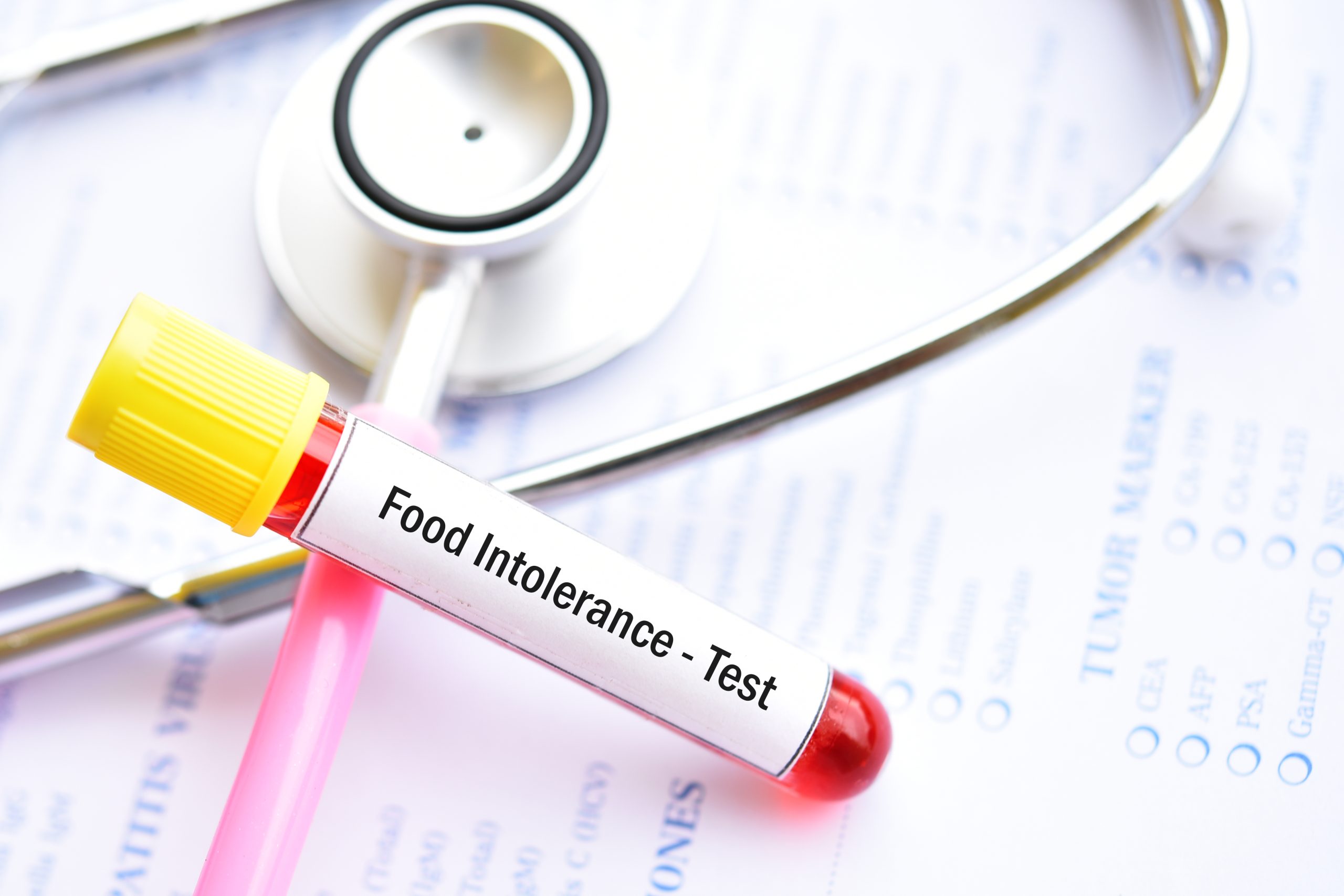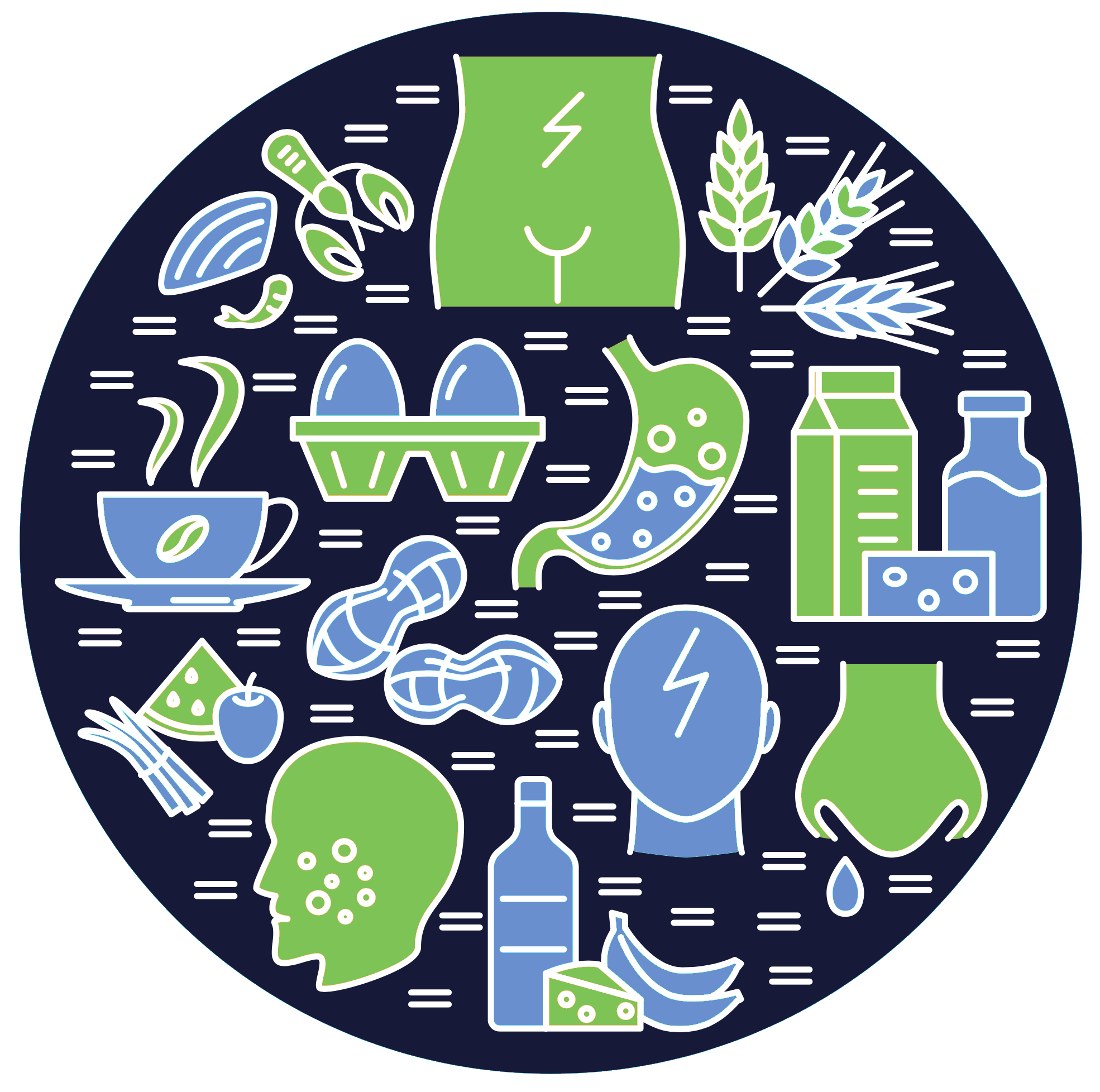Food Sensitivity Testing
Health solutions focused on you, not the disease.
Is the Food You're Eating Making You Sick?

Schedule Your Discovery Call
What Is A Food Sensitivity?

A food sensitivity, also known as a food intolerance, is caused by the body’s inability to digest a specific food. Unlike food allergies, this reaction occurs in the digestive tract rather than in the bloodstream. Symptoms are “delayed onset,” meaning symptoms may not appear for hours or even days after consumption. Food sensitivities are not permanent and often fluctuate throughout a person’s lifetime.
Interestingly, people with sensitivities often crave the foods they are most sensitive to. Some researchers suggest that our bodies can become addicted to the chemical messengers, such as histamine or cortisol, that are secreted by immune cells in response to allergens in the body. The presence of these chemical messengers may induce a soothing response in the body, which increases the desire to consume more of these foods.
It is important to note that food sensitivities and allergies can change over time. Just because you’ve been diagnosed with a food sensitivity or allergy one year, does not mean it will hold true for the rest of your life. This is why we encourage our patients to get tested at least once a year to monitor for changes in their physiological reactions to food.
What Are Some Symptoms Of A Food Sensitivity?
- Headaches
- Migraines
- Fatigue
- Gas / Bloating
- Weight Loss Resistance
- Thyroid Dysfunction
- Chronic Pain / Inflammation
- Stomachache
What Causes A Food Sensitivity?
Over-consumption. You can become sensitive to any food you eat too often. Most people eat a select few foods several times a day, increasing the likelihood of a sensitivity. For example, wheat is a common ingredient in breakfast cereals, sandwich bread, and pastas. An individual who consumes wheat products at least three times a day, nearly every day, is more likely to develop a sensitivity to it.
Leaky gut syndrome. The digestive tract plays a vital role in preventing illness and disease by providing an impenetrable barrier. When the lining of the gut is inflamed from a food sensitivity, small openings develop between the tightly woven cells that make up the walls of the intestines, leading to “leaky gut syndrome.” In a body with leaky gut syndrome, partially digested dietary protein can pass through the intestinal barrier, making its way into the bloodstream. These large protein molecules can cause an allergic reaction, producing symptoms not only in the intestines, but throughout the body. Additionally, hundreds of yeast and bacteria are released from the gut into the bloodstream where they can cause an infection anywhere, including muscles, joints, bones, teeth, coronary arteries, and even the brain. The early introduction of solid foods to infants before six months of age contributes to leaky gut syndrome and subsequent food allergies and sensitivities.
Probiotic deficiency. Another common cause of leaky gut syndrome is the absence of probiotics, or “friendly” bacteria in the intestines. The friendly bacteria produce fuel for intestinal cells and kill bad bacteria to maintain balance and stability in the gut. Parasitic infections, antibiotic treatment, toxic pharmaceuticals, stress, poor diet (sugar and flour), smoking, alcohol, excessive hygiene, candida overgrowth, and bottle-feeding your baby can disrupt the proper ratio of friendly bacteria to bad bacteria.

A fatigued immune system. Constant stress, exposure to air and water pollution, and the pesticides and chemicals in our food puts a strain on our immune system. This chronic strain takes a toll on our immune function, affecting its response to the antigens in food.
Genetics. Food allergies and intolerances seem to be hereditary. Research indicates that if both parents have allergies, their children have a sixty-seven percent chance of developing food allergies as well. When only one parent is allergic, the child has a thirty-three percent chance of developing food allergies. An individual may inherit an enzyme deficiency that enables them to digest dairy, or one of the ten genetic variants for susceptibility to a nightshade sensitivity. Genetic variations predict the severity of the sensitivity.
How Food Sensitivities Can Destroy Your Health
Food sensitivities cause chronic inflammation in the body. Inflammation is the primary contributor of weight gain and disease in the United States. It is also the driving force behind conditions such as heart disease, cancer, diabetes, and high cholesterol. Food sensitivities cause systemic inflammation that begins in the gut, and expands into other systems in the body.
A gluten sensitivity causes the immune system to attack the intestinal cells, inflaming the gut. When the lining of the gut is inflamed, the body is prone to developing more sensitivities and reactions until the problem eventually spirals out of control. It is important to note that the small intestine is where the body absorbs its nutrients. A food sensitivity will slowly destroy the small intestine, leading to nutrient deficiencies and subsequent health conditions.
Since most people eat the foods they are sensitive to multiple times a day, each time those foods enter the body, the immune system is sent into a frenzy. Since symptoms can be delayed for up to 72 hours after consuming a food, sensitivities can be difficult to spot. Without a diagnosis or awareness of a sensitivity, this damage is inflicted over and over again until inflammation makes its way through the body, causing chronic disease or weight gain.
What Conditions Can Food Testing Help Treat?
- Optimal health and nutrient absorbtion
- Women’s health, fertility, pregnancy, lactation, perimenopause, and menopause
- Stress management
- Mental and physical performance
- Sports nutrition
- Surgery prep and recovery
- Weight management
- Burnout, fatigue, depression, mood swings, low vitality
- Chronic conditions, and/or metabolic syndrome (increased blood pressure and blood sugar, excess body fat, abnormal cholesterol)
We don't guess - we test!
Get Started Today
Step 1 New Patient Exam
Step 2: Diagnostic Testing
Step 3: The Journey


